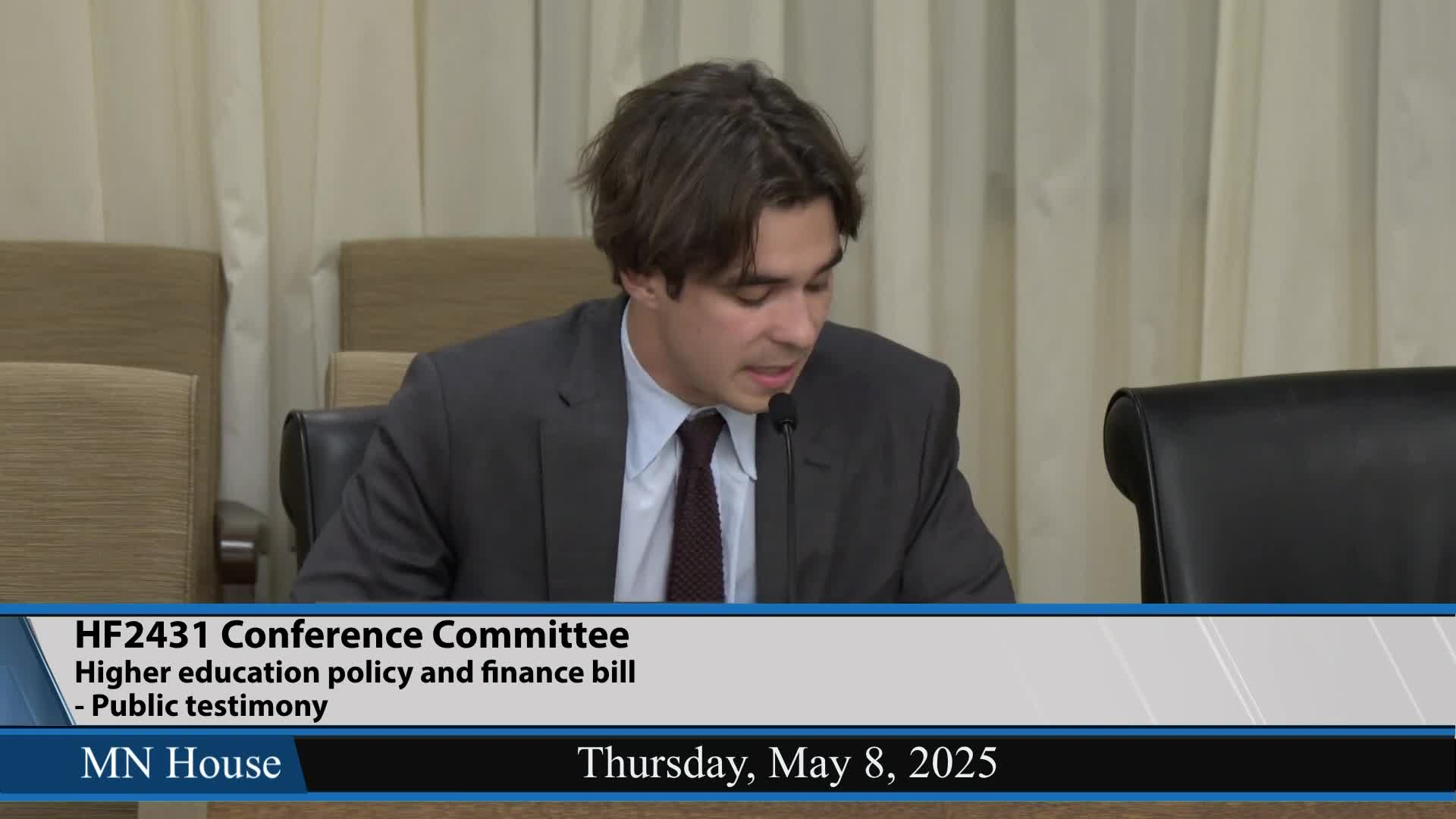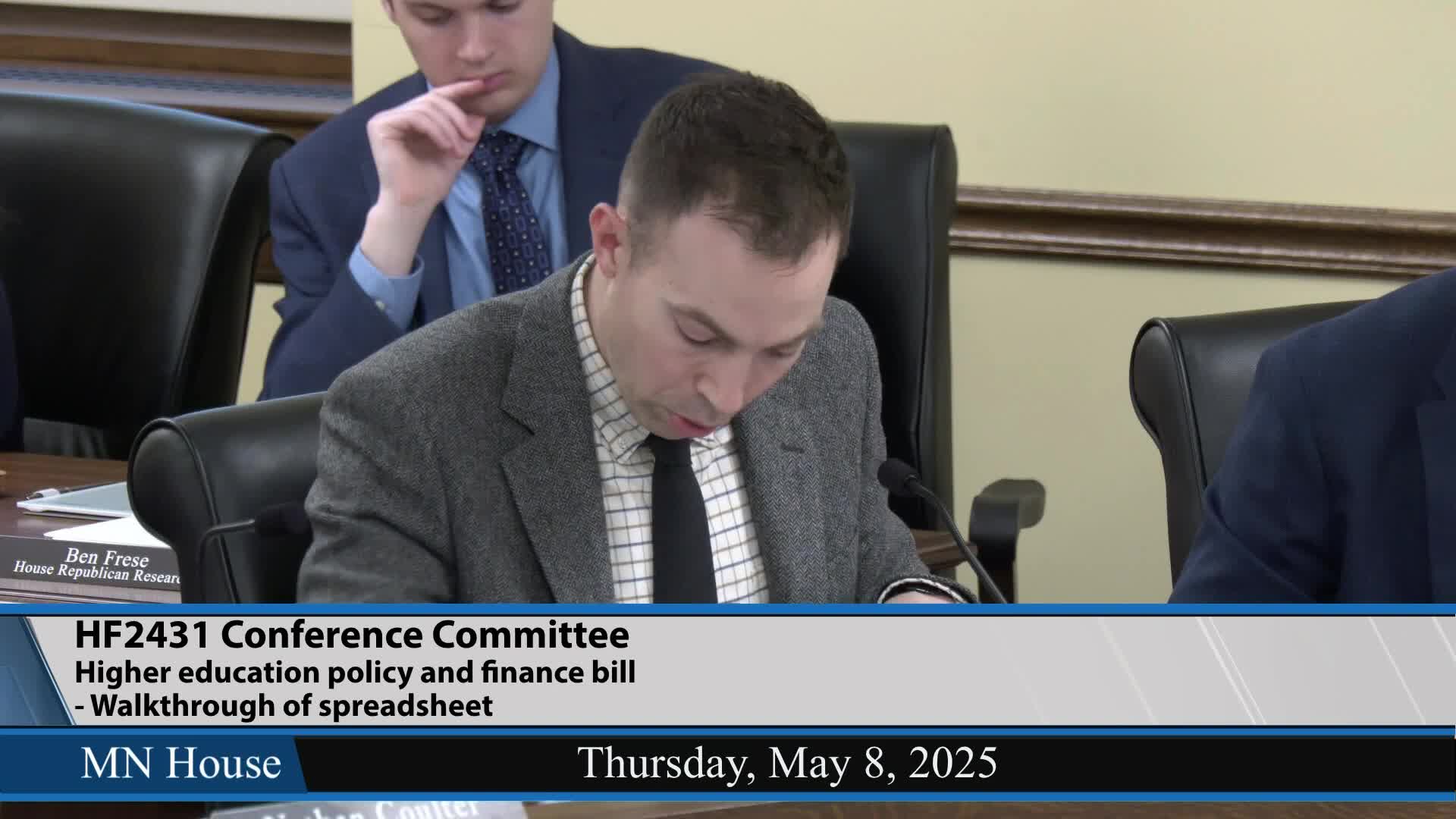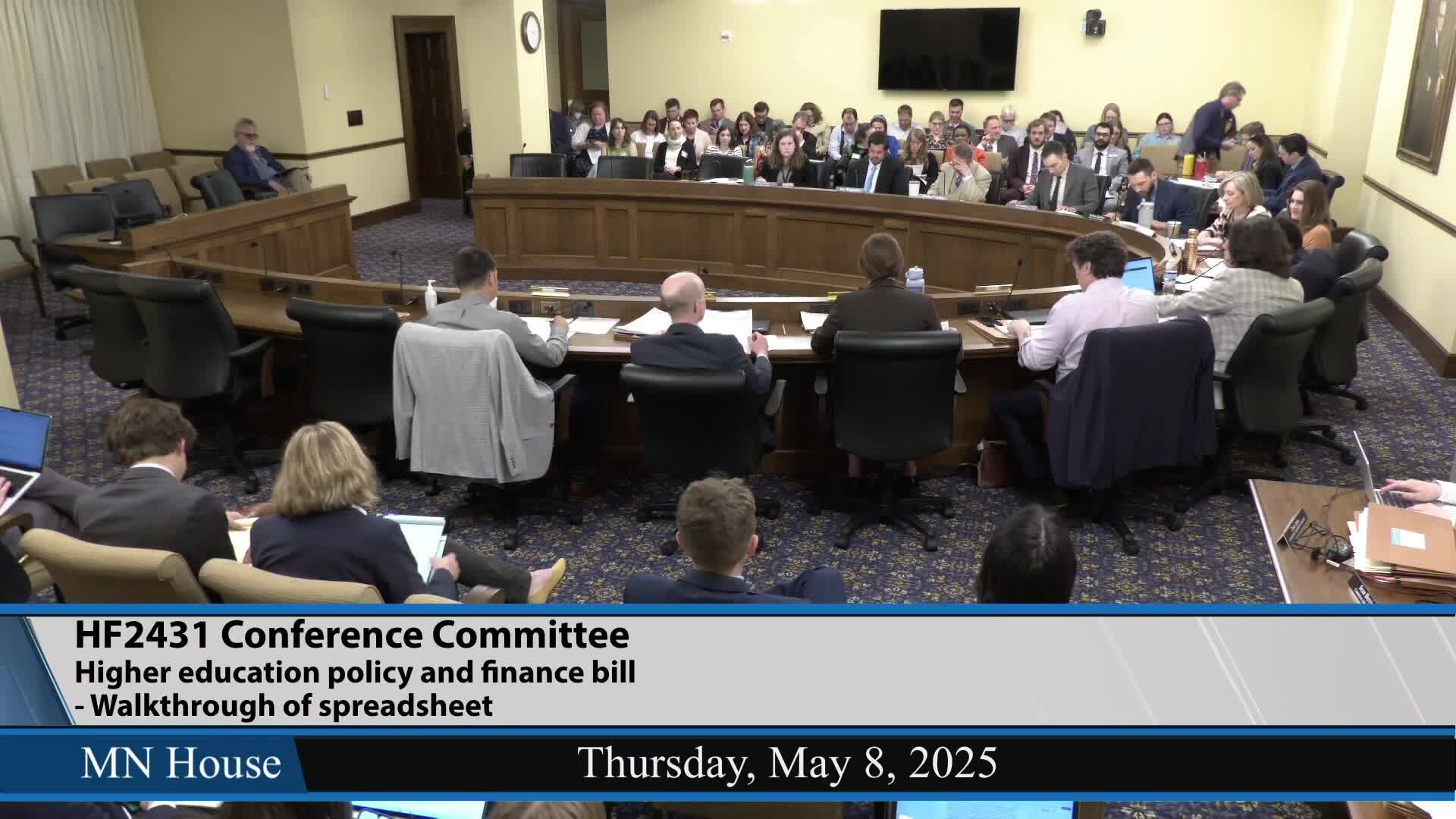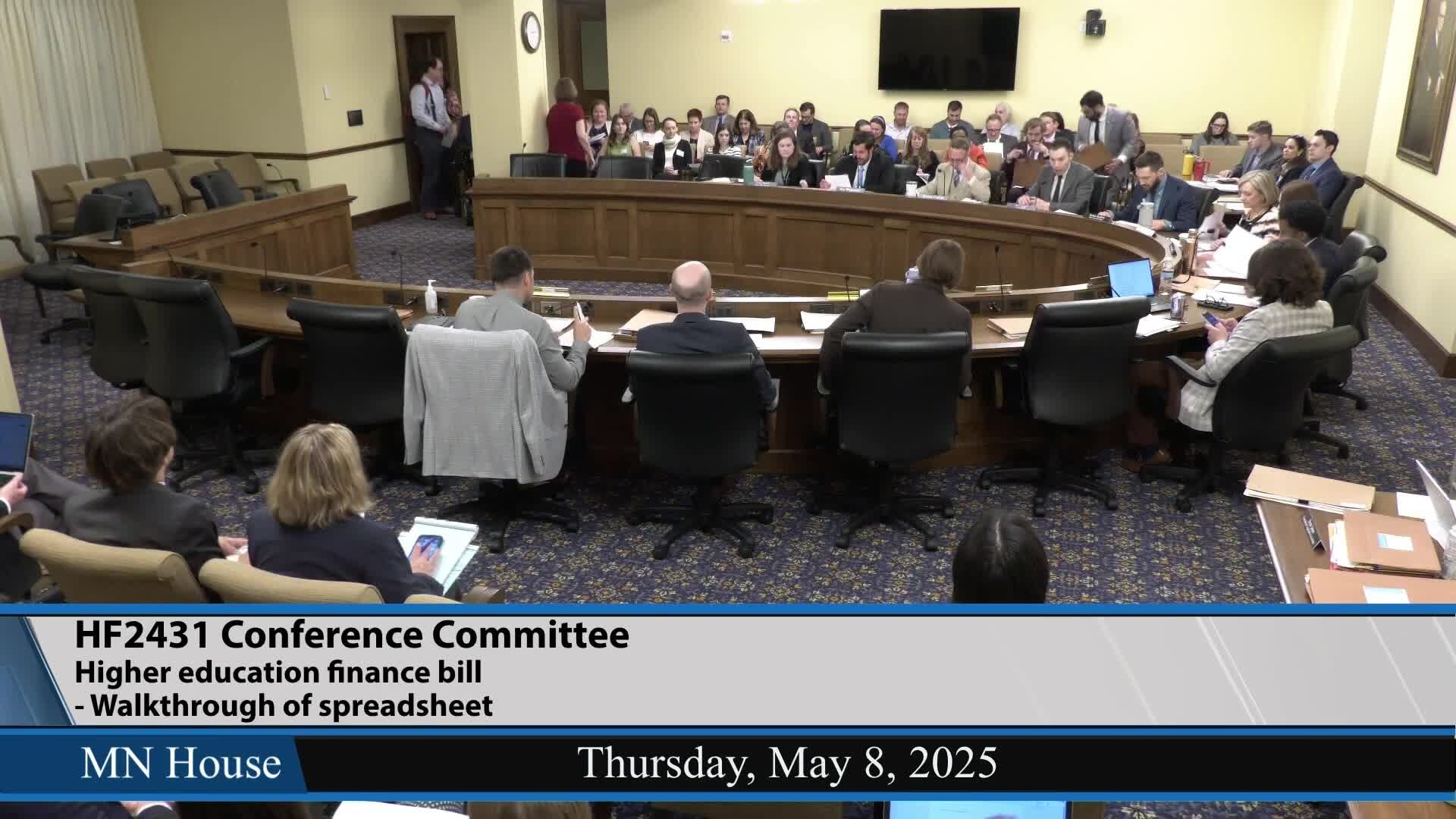Article not found
This article is no longer available. But don't worry—we've gathered other articles that discuss the same topic.

Minnesota State warns of tuition choices as campuses face budget pressure; board considers scenarios, trustees to decide in June

University cannabis research center urges conference committee to preserve state funding as dispensaries approach opening

University of Minnesota warns that Senate rider eliminations would force cuts to geological survey, Bell Museum and other programs

Researchers, advocates urge conference committee to reject House cuts to spinal cord and traumatic brain injury research funding

